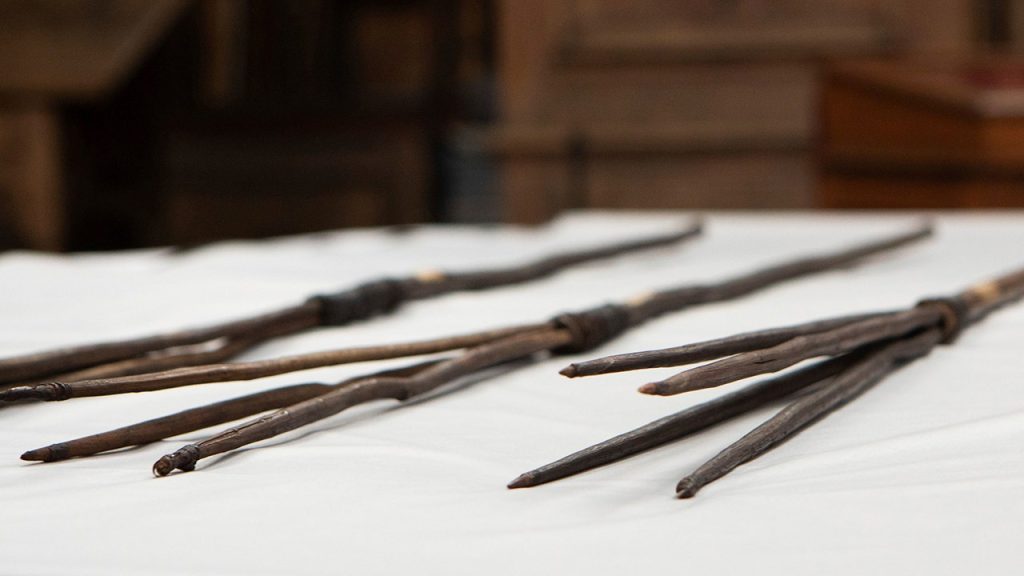Four Aboriginal spears that were taken to England by Captain James Cook more than 250 years ago were returned to Australia’s Indigenous community at a ceremony at Cambridge University. The spears were presented to Trinity College, Cambridge, by the 4th Earl of Sandwich in 1770, along with other items from Cook’s Pacific voyage. The spears have been at the university’s Museum of Archaeology and Anthropology since the early 20th century. The return of the spears, agreed upon following a campaign and formal repatriation request, was seen as a positive step toward reconciliation and a deeper understanding of Britain and Australia’s shared history.
The spears are considered to be exceptionally significant as they were the first artifacts collected by the British from any part of Australia that remain. Nicholas Thomas, the director of Cambridge’s archaeology museum, stated that they reflect the beginning of a history of misunderstanding and conflict between Indigenous Australians and Europeans. The Gujaga Foundation, which leads cultural and research programs within the La Perouse Aboriginal community, described the return of the spears as a momentous occasion. The foundation’s director, Ray Ingrey, emphasized the historical significance of the spears as they represent the first point of British contact with Aboriginal Australia.
The Gujaga Foundation plans to place the spears on permanent display at a new visitor center to be constructed at Kurnell, Kamay. Ingrey highlighted that the spears were taken by members of Cook’s expedition from an unoccupied Aboriginal campsite without permission. A diary entry by botanist Joseph Banks, who was also part of the expedition, mentioned that the crew took all the spears they could find as they offered gifts such as beads and clothes to the Indigenous people before leaving. The return of the spears is seen as a step towards acknowledging the colonial past and working towards reconciliation between Indigenous Australians and the descendants of European colonizers.
Sally Davies, head of Trinity College, expressed that returning the spears was the right decision and that the institution is committed to reviewing the complex legacies of the British empire, especially regarding its collections. The artifacts’ return is meant to promote understanding and respect for Indigenous cultures and histories that have been impacted by colonialism. The return of the spears signifies a recognition of the harm caused by colonial actions and the importance of acknowledging and addressing these injustices. By returning the spears to their place of origin, efforts are being made to honor the Indigenous communities affected by historical injustices and to foster greater appreciation of their heritage and cultural practices.
The repatriation of the spears was a result of a campaign and formal request by the Indigenous community for the return of culturally significant artifacts that were taken without consent centuries ago. The return of these artifacts is part of a broader movement towards decolonization and the recognition of Indigenous rights to their cultural heritage. By returning these spears, steps are being taken to address the historical injustices perpetuated by colonial powers and to support the healing and empowerment of Indigenous communities by respecting their cultural practices and beliefs. The return of the spears is a symbolic gesture of reconciliation and a commitment to honoring the Indigenous peoples of Australia and their rights to their ancestral lands and cultural artifacts.


